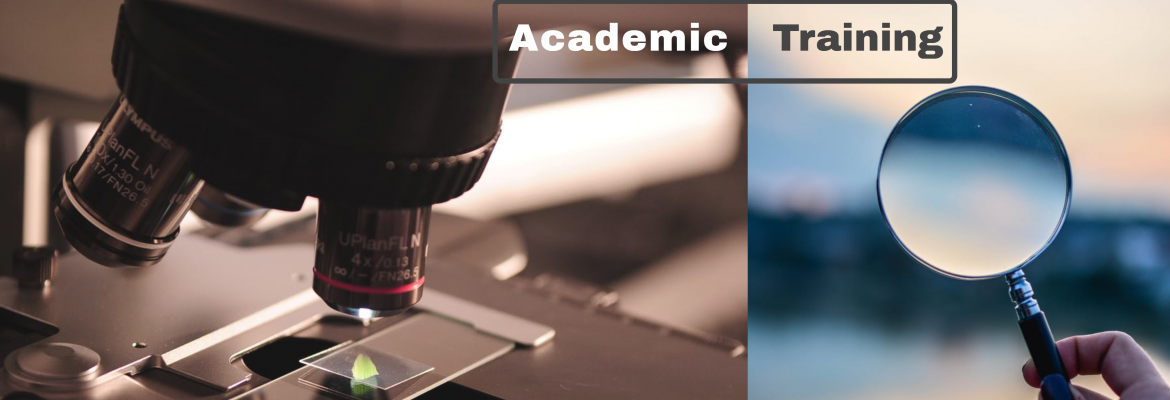Anaesthesia offers a wide range of research opportunities, investigating the diverse fields of pain medicine, critical care, anaesthesia and perioperative medicine.
Some anaesthesia specific advice for trainees can be found from the National Institute of Academic Anaesthesia (NIAA). More generic advice on integrated clinical training can be found from the National Institute for Health Research (NIHR).
Introduction to research
The UDA runs an annual course on scientific methods and research, (Scientific Methods and Research Techniques – SMART) which provides a three-day introduction to research methods in Anaesthesia (details to be confirmed for the 23/24 SMART course).
Formal research training pathways
Entry to an academic program can occur at several stages during specialty training in anaesthesia.
Academic Clinical Fellowship (ACF)
These are three-year training posts running from CT3 to ST5, allowing 25% research time. ACFs are aimed at post-primary FRCA trainees who wish to gain research experience and pilot data prior to applying for a research training fellowship (e.g. PhD funding).
Under the 2021 curriculum, they are offset from national recruitment. Posts are advertised annually on a national basis for entry at CT3 August intake, open to any eligible applicant in the UK. Applicants must have full Primary FRCA at the time of interview and both academic and clinical suitability will be assessed. Currently the East of England has 1 ACF in Intensive Care and 2 in Anaesthesia, all hosted by the University of Cambridge Division of Anaesthesia (UDA).
University Division of Anaesthesia (UDA) Year
This is an opportunity for post-fellowship trainees, who already hold an East of England NTN, to spend one year of specialty training based in the UDA. This year allows the majority of time to be spent obtaining research training and undertaking a research project with clinical duties limited to a maximum of one day a week with full out of hours on-call duties. This year can either act as a stand-alone year, providing an in-depth insight into research methods and academic skills, and/or provide time for collection of pilot data to support a Research Training Fellowship application. More details of this scheme and how to apply can be found here (UDA attachment)
Research Training Fellowship
These are funded by a variety of bodies, including charities, the National Institute of Academic Anaesthesia (NIAA), the National Institute for Health and Care Research (NIHR) and research councils e.g. the Medical Research Council (MRC). To apply, you will need to identify a supervisor, project and sponsoring academic institution (usually the University of Cambridge or one of its affiliated institutes). Your proposed supervisor will help you draft an application.
The Wellcome Trust, in partnership with the PhD Programme for Health Professionals at the Universities of Cambridge and East Anglia, funds 7 PhD studentships for clinicians of all specialties, 5 based at the University of Cambridge and 2 at the Sanger Institute.
Research Training Fellowships are highly competitive. Applications typically require some pilot data, and although time in an ACF or UDA post is not essential, periods of dedicated research time greatly assist in obtaining such data as well as in gaining key research skills.
Applications from suitably qualified candidates from any training scheme in the UK to undertake anaesthetics related PhDs at Cambridge are welcomed.
Academic Clinical Lectureship (ACL)
These are post-doctoral posts taken up for the later years of clinical training (typically appointed to those in Stage 3/ST6+), providing 50% research time to develop academic skills and obtain post-doctoral funding alongside completion of advanced specialty training and obtaining their CCT. These are advertised by Universities (e.g. University of Cambridge, University of East Anglia) and can be held for up to 4 years.
The expectation is that trainees who obtain one of these posts will use them as a foundation to apply for an Intermediate Fellowship or Clinician Scientist grant from the MRC, Wellcome Trust, NIHR or other funding bodies. The UDA currently hosts two ACLs in Anaesthesia and one in Intensive Care Medicine.
Senior researchers in Academic Anaesthesia past and present, include:
Current ACF and UDA fellows include:
George Couch
Stuart O’Connor
Lucy Miller
Amit Deshmukh
Matthew Ellington
Academic leads for the university division of Anaesthesia:
Prof David Menon
Prof Jonathon Coles
For further information regarding the East of England academic training in Anaesthesia and ICM please contact Prof David Menon and Prof Jonathon Coles, Department of UDA or Dr Helen Underhill TPD East of England School of Anaesthesia.
